It was fatal advice, that which the United States lent the Shah of Iran, recommending the deployment of the army in the major cities to control the protests of 1978. Deploying harsh repression, the army killed thousands, before collapsing in front of the popular wave of the people – the Shah escaped, and with it the end of the US patronage of Iran in 1979.
Whether we read this piece of advice as a gross US error that sought to improvise the way for a coup resembling that conducted against Mohammed Mossadegh in 1953, Iran's former prime minister – or whether we interpret it according to a conspiracy theory which states that the Shah was already on his way out, leaving cold war-era Washington with the necessary choice of accepting Islam as a better alternative to communism; either way, forty years after that fatal advice which Iran's revolutionaries benefited from, and despite the killing of thousands of them, the Iranian regime itself has now advised its Iraqi ally to adopt a similar policy to deal with the protests: deploying harsh repression and violence in the face of the protests.
Although the Iraqi government has so far killed many protesters, it has not fully abided with the recommendations of the 'big brother' to the east.
The Iranians also want something else: an attack on the US and Saudi embassies in Baghdad. Hassan Shariatmadari, the editor-in-chief of the Iranian Kayhan newspaper which is closely affiliated with the Supreme Guide of the Iranian revolution, Ali Khamenei, called for the Iranian-backed Iraqi Popular Mobilization Forces (PMF) to carry out the attacks, with a rocket landing near the US embassy shortly afterwards. Days after Shariatmadari's call, seventeen rockets were also fired at a US base in Mosul. Eighteen rockets only indicate a muted response by Iran's allies inside Iraq.
Were it not for strong deterrent measures by #Iraq's security forces, protesters would have set fire to Iran's consulate in Karbala. Once the loving nation that helped defeat ISIS, revolutionary Iran became the "Great Satan" for many Iraqis
Iran's Ali Khamenei presupposes that Iraqis must be in the axis of resistance against the Great Satan (US). He wants pawns in his great proxy battle against Israel, the United States, Wahabbism and others.
Preventing Saudi Arabia from stepping in as a replacement for Iran's influence in Iraq can only be achieved by the steadfast presence of an Iraqi nation, one that tells Saudi Arabia to mind its own business, that we don't need you.
The 'Arabness' of Saudi Arabia does not grant it a free pass. Arabness is only the opposite of the sectarian Shia cries that Iran promotes and through which it justifies its role. Iraq is Iraq, we speak Arabic, Kurdish, Syrian and Turkmen.
By contrast, the calls to attack the embassies of adversaries on Iraq's 'score-settling' ground was counterbalanced by an attack in the opposite direction: the Iranian embassy in Karbala. Were it not for strong deterrent measures by Iraqi security forces, the protesters would have set fire to the building. Once the loving nation that helped defeat ISIS, Revolutionary Iran became the "Great Satan" for many Iraqis.
The recent events thus pose an important question: What is the reason for all of this animosity towards Iran?
It is said, and I cannot verify the authenticity of this, that Ali Khamenei called his friend Fadel al-Maliki, a renowned Iraqi khatib (one who gives sermons in mosques), asking him bewildered: "Why do Iraqis hate us this much?" He received the answer that Iran had dispatched its worst proxies to govern Iraq.
Whether this story is true or not, I do not think that Khamenei understands this reply. He presupposes that Iraqis must be in the 'axis of resistance' against the "Great Satan" – the United States – no matter the circumstances, no matter their suffering; it matters little that their oil-rich country is poverty stricken, or that militias violate the country's security and the freedom of its citizens; it matters little if the origins of the country's corruption and ruin delve deeper in destruction and waste. He wants pawns in his great battle that was never undertaken directly, but rather conducted by proxy, against Israel, the United States, Wahabbism and others.
It is the same logic that was used by Arab elites in the past, when Iraqis languished under the injustice, tyranny, recklessness and foolishness of Saddam Hussein. The Arabs lent support to Saddam because he was a symbol against imperialism, the Persians, Zionism and other such labels. The 'Guardianship of the Islamic Jurists' – Iran's ruling regime – speaks in the same ridiculous terms, calling for patience while promising that those who remain patient amongst its ranks and within its policies would enter paradise, because Khamenei has the key to heaven.
Now, they are saying that there are Saudi games, which I don't doubt exist. Saudi Arabia will indeed meddle, not only to excise Iranian influence from Iraq, but to prevent the establishment of a strong, democratic Iraq with an strong, not particularly appealing to Saudi’s Salafis, no too dissimilar Iran's Khomeinists.
The 'Arabness' of Saudi Arabia does not grant it a free pass. Arabness is only the opposite of the sectarian Shia cries that Iran promotes and through which it justifies its role. Iraq is Iraq, the majority of its citizens speak Arabic, as well as others who speak Kurdish, Syriac and Turkmen. The Arab invaders from the south differ little from the enslavers from the Persian east in terms of their malice, greed and destruction. They too say "Be amongst our ranks or we will destroy you", and await the moment when they can have a strong footprint to exercise their arrogance.
Herein lies the value of the protests and their importance – where it fails to obey the calls of those who want to reformulate the movement in their own image and appropriate it for their own course. Herein lies the value of those who call for true democracy, a strong economy and an inclusive homeland, along the lines of that astonishing slogan that Iraqis raised: "Is there a nation? Is there a government?". This statement alone surpassed all pictures in its beauty, despite the magnificence of the images of the protests and Tahrir Square.
Preventing Saudi Arabia from stepping in as a replacement for Iran's influence in Iraq can only be achieved by the steadfast presence of an Iraqi nation, one that tells Saudi Arabia to mind its own business, that we don't need you; that we are confronting Iran for the sake of Iraq, not for the sake of the Arabs; for the sake of our country's independence and the safety and security of our youth – not for Bin Salman to emerge victorious over Bin Khamenei, and not for the sectarian Saudi Salafists currently masquerading in the clothes of "openness" to emerge victorious against the sectarian Iranian regime masquerading in the clothes of "resistance."
To understand the value of the protests, I attempted to gauge those at Tahrir Square; I who am now far from them after having been accustomed to being part of them. I found a diversity that made me proud. Notwithstanding some impulsive phenomena and scenes that require reconsideration, and notwithstanding the presence of those who dream of the return of their Ba'athist father or grandfather who was an officer during Saddam's era, or those who are still limited by their sects in their outlook, I found a scenery that prompts much thought about the new changes in a generation which appear deep and important – though caution must be taken against the hasty slogans calling for a presidential system in order to acquire quick results, but in a way that could lead to adverse effects in the future.
The road to a presidential system is dangerous, full of risks due to the clear predisposition for authoritarianism in the Iraqi individual. The parliamentary system is important; the problem doesn't lie in it, but in the small number of leaders, the types of Nouri al-Maliki, Muqtada al-Sadr, Amar al-Hakim, Masoud Barzani, Osama al-Nujaifi, Hadi al-Amiri and Qais al-Khazali…and a few others like them who are leading the political scene and monopolize decision-making, in the name of family or sectarian loyalties or through the influence of their money and their strong foreign relations. Indeed, some of these names are not even elected officials. The parliamentary system is a guarantor against tyranny, one that Iraq should not lose just for a momentary respite, whereby a person such as Egypt's Sisi can ascend to trample on Iraqi citizens and kill even the small margin of freedom that they possess.
As for the foreign dimension, the generals of the Quds Force do not only fear the end of their influence in Iraq, but also of the protests spreading to Iran – which must inevitably happen because the Iranian people are suffering like their neighbors in Iraq. Meanwhile, the picture will one day be complete when the wave of change spreads to the Gulf Arab countries which host injustice, brutality, classism, discrimination, the excommunication of Muslims as well as extremism – all of which are sufficient to launch a major movement.
*The views and opinions expressed in this article are those of the author and do not necessarily reflect Raseef22
Raseef22 is a not for profit entity. Our focus is on quality journalism. Every contribution to the NasRaseef membership goes directly towards journalism production. We stand independent, not accepting corporate sponsorships, sponsored content or political funding.
Support our mission to keep Raseef22 available to all readers by clicking here!
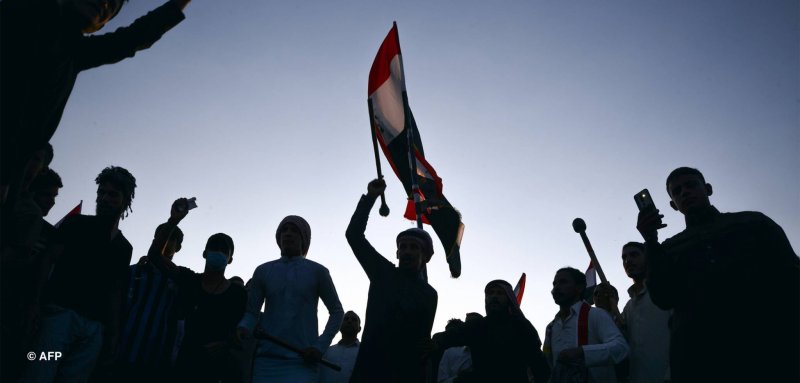
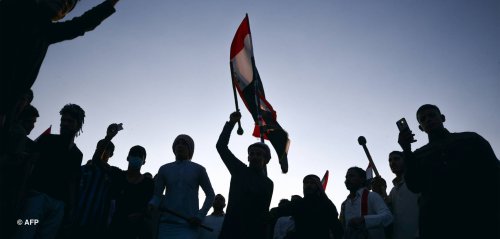
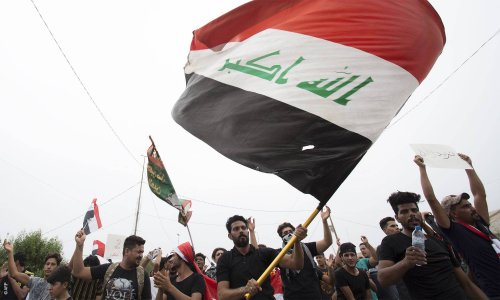
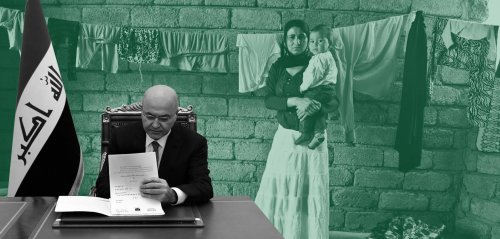
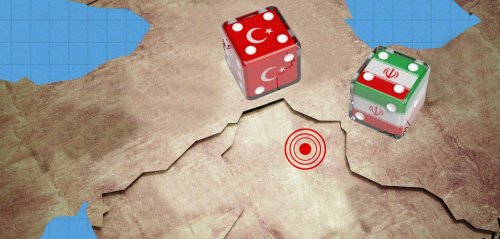




Join the Conversation
جيسيكا ملو فالنتاين -
1 day agoجميل جدا أن تقدر كل المشاعر لأنها جميعا مهمة. شكرا على هذا المقال المشبع بالعواطف. احببت جدا خط...
Tayma Shrit -
3 days agoمدينتي التي فارقتها منذ أكثر من 10 سنين، مختلفة وغريبة جداً عمّا كانت سابقاً، للأسف.
Anonymous user -
3 days agoفوزي رياض الشاذلي: هل هناك موقع إلكتروني أو صحيفة أو مجلة في الدول العربية لا تتطرق فيها يوميا...
Anonymous user -
3 days agoاهم نتيجة للرد الايراني الذي أعلنه قبل ساعات قبل حدوثه ، والذي كان لاينوي فيه احداث أضرار...
Samah Al Jundi-Pfaff -
5 days agoأرسل لك بعضا من الألفة من مدينة ألمانية صغيرة... تابعي الكتابة ونشر الألفة
Samah Al Jundi-Pfaff -
5 days agoاللاذقية وأسرارها وقصصها .... هل من مزيد؟ بالانتظار